
Bsharri District: The Heart of the Cedars of Lebanon
Bsharri District, nestled in the northern mountains of Lebanon, is a treasure trove of natural beauty and cultural heritage. Known for its ancient cedar forests, the region is home to the famous Cedars of God, a UNESCO World Heritage site. These majestic trees, some over a thousand years old, stand as a testament to Lebanon's rich history and natural splendor. The district is also the birthplace of the renowned poet and philosopher, Khalil Gibran. Visitors can explore the Gibran Museum, which houses his personal belongings, manuscripts, and artworks. The museum, set in a picturesque location, offers a serene and reflective experience. Outdoor enthusiasts will find plenty to do in Bsharri. The area is ideal for hiking, with trails that offer breathtaking views of the Qadisha Valley, another UNESCO site. This valley is dotted with ancient monasteries and hermitages, some of which date back to the early Christian era. In winter, the district transforms into a snowy wonderland, attracting skiers and snow lovers to the Cedars Ski Resort. Bsharri's charming villages offer a glimpse into traditional Lebanese life. Visitors can enjoy local cuisine, visit artisan shops, and experience the warm hospitality of the residents. The district's unique blend of natural wonders, cultural landmarks, and outdoor activities makes it a must-visit destination in Lebanon.
Local tips in Bsharri District
- Visit the Cedars of God early in the morning to avoid crowds and enjoy the serene atmosphere.
- Wear comfortable hiking shoes and bring water if you plan to explore the Qadisha Valley trails.
- Check the weather forecast if you are visiting in winter, as heavy snowfall can affect travel plans.
- Don't miss trying local dishes like kibbeh and the traditional Lebanese mezze in village restaurants.
- Allocate enough time to fully explore the Gibran Museum and its beautiful surroundings.
Bsharri District: The Heart of the Cedars of Lebanon
Bsharri District, nestled in the northern mountains of Lebanon, is a treasure trove of natural beauty and cultural heritage. Known for its ancient cedar forests, the region is home to the famous Cedars of God, a UNESCO World Heritage site. These majestic trees, some over a thousand years old, stand as a testament to Lebanon's rich history and natural splendor. The district is also the birthplace of the renowned poet and philosopher, Khalil Gibran. Visitors can explore the Gibran Museum, which houses his personal belongings, manuscripts, and artworks. The museum, set in a picturesque location, offers a serene and reflective experience. Outdoor enthusiasts will find plenty to do in Bsharri. The area is ideal for hiking, with trails that offer breathtaking views of the Qadisha Valley, another UNESCO site. This valley is dotted with ancient monasteries and hermitages, some of which date back to the early Christian era. In winter, the district transforms into a snowy wonderland, attracting skiers and snow lovers to the Cedars Ski Resort. Bsharri's charming villages offer a glimpse into traditional Lebanese life. Visitors can enjoy local cuisine, visit artisan shops, and experience the warm hospitality of the residents. The district's unique blend of natural wonders, cultural landmarks, and outdoor activities makes it a must-visit destination in Lebanon.
When is the best time to go to Bsharri District?
Iconic landmarks you can’t miss
Cedars of God Bsharri
Discover the breathtaking beauty of the Cedars of God in Bsharri, Lebanon—an ancient wonder and a UNESCO World Heritage Site that captivates every visitor.
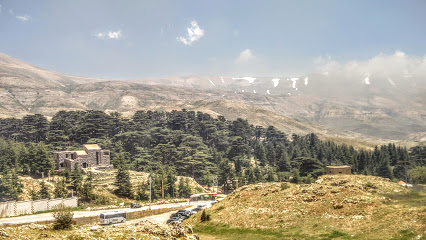
دير مار أنطونيوس الكبير قزحيا - الرهبانية اللبنانية المارونية
Discover the serene beauty and rich history of the Monastery of Saint Antonius Qozhaya, a true gem in the heart of Lebanon's landscape.
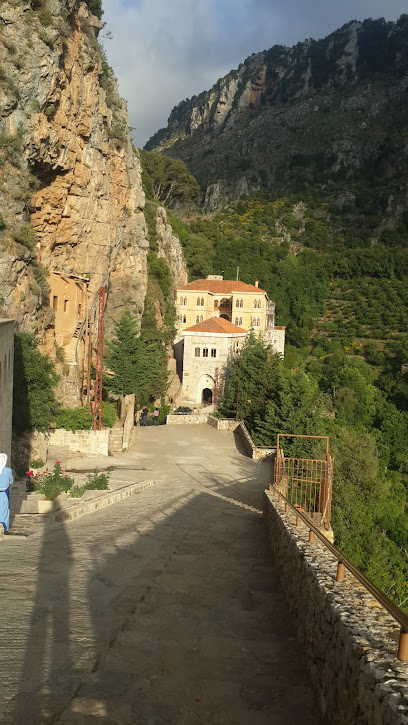
Horsh Ehden
Experience the breathtaking beauty of Horsh Ehden, a national reserve filled with lush landscapes, rich wildlife, and endless outdoor adventures in Lebanon.
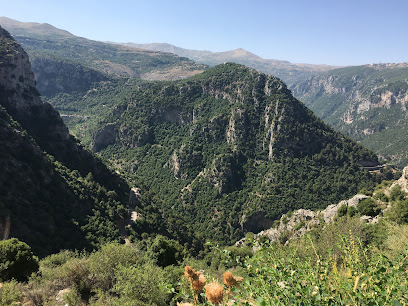
Kahlil Gibran Museum
Explore the Kahlil Gibran Museum in Bsharri, a cultural haven dedicated to the renowned poet and artist, showcasing his masterpieces and legacy.
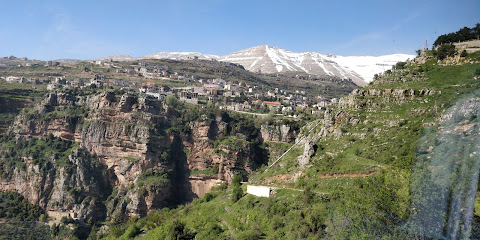
House Of saint Charbel Bkaa Kafra Lebanese Maronite Order
Discover the spiritual heart of Lebanon at the House of Saint Charbel, a serene pilgrimage site nestled in the scenic village of Bkaa Kafra.
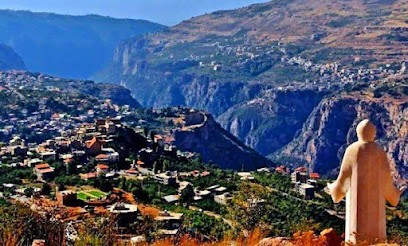
Khan El Askar
Explore Khan El Askar: A historic trading inn in Tripoli, Lebanon, showcasing rich culture and stunning architecture.
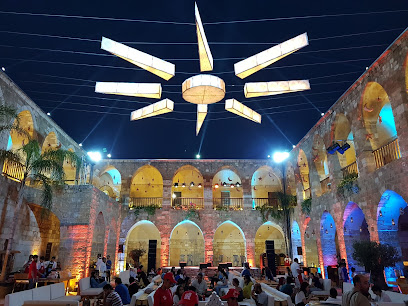
Monastery of Mar Lishaa
Experience the rich history and serene beauty of the Monastery of Mar Lishaa amidst the breathtaking landscapes of Bsharri, Lebanon.
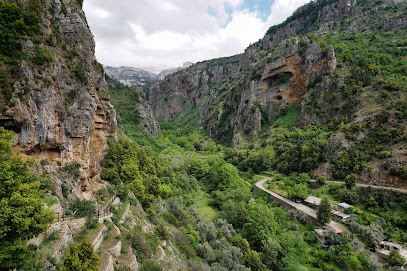
Bcharre Public Garden
Experience tranquility at Bcharre Public Garden, a serene retreat in Bsharri, offering stunning mountain views and lush landscapes for a perfect getaway.
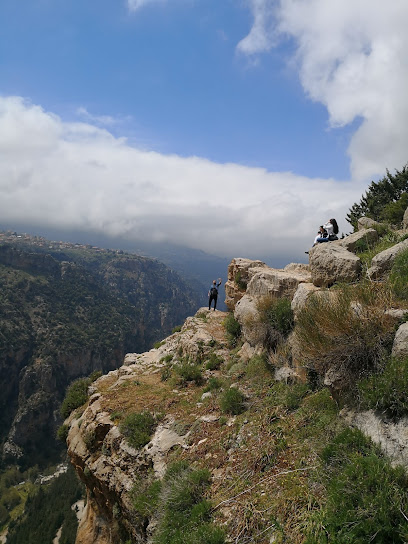
La Jetée
Explore La Jetée, a historical landmark in Bsharri, Lebanon, where stunning views and rich cultural heritage intertwine for a memorable experience.
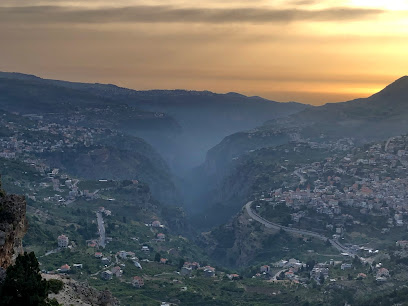
Kadisha cave bcharre
Discover the breathtaking beauty and historical significance of Kadisha Cave in Bcharre, Lebanon – a true natural wonder and spiritual haven.
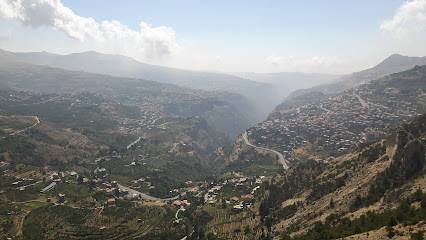
Saint Saba Cathedral
Explore the serene beauty and architectural splendor of Saint Saba Cathedral in Bsharri, a true gem of Lebanese heritage.
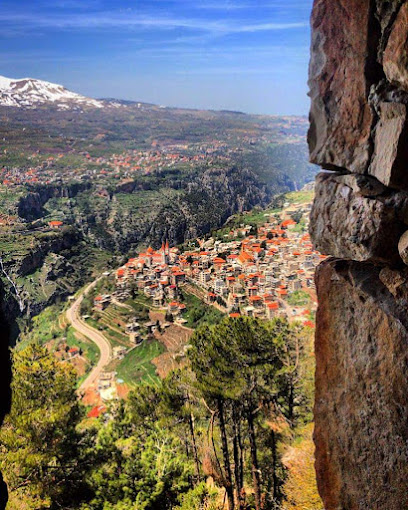
Tiger Guest House
Experience the serene beauty of Bsharri at Tiger Guest House, your cozy mountain retreat in Lebanon's stunning landscapes.
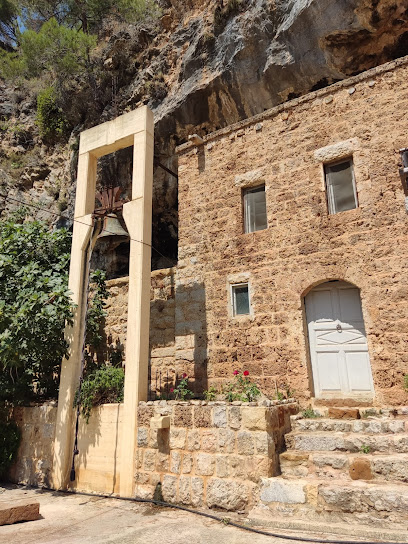
Qadisha
Explore the breathtaking Qadisha Valley, a UNESCO World Heritage Site in Lebanon, rich in history, spirituality, and natural beauty.
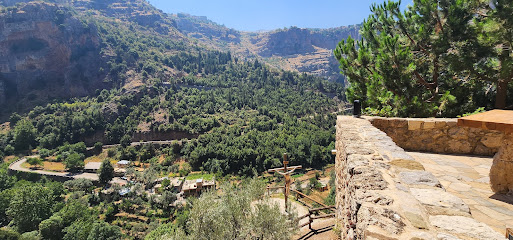
Cedars international festival
Discover the vibrant Cedars International Festival in Lebanon, a cultural celebration of music, art, and local traditions amidst breathtaking cedar landscapes.
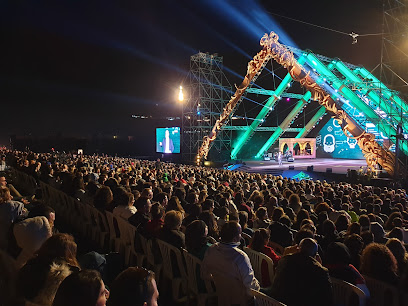
Qannoubine Valley Bsharri
Explore the serene Qannoubine Valley in Bsharri, a sacred sanctuary with breathtaking landscapes and rich historical significance.
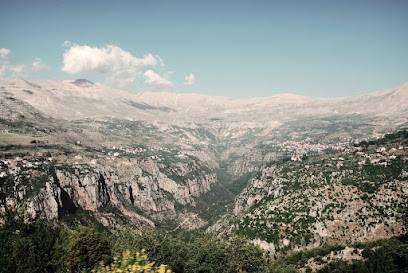
Unmissable attractions to see
Saydet el Hosn - Lady of the Fortress سيدة الحصن
Discover the serene beauty and rich heritage of Saydet el Hosn, the Lady of the Fortress, in the heart of Ehden, Lebanon.
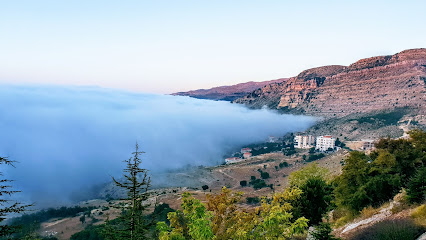
Cedars Bsharri Ski Resort
Discover the enchanting Cedars Bsharri Ski Resort, where exhilarating slopes meet stunning natural beauty in Lebanon's heart.
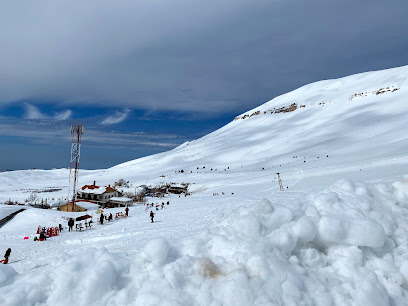
Bcharre Public Garden
Explore the natural beauty of Bcharre Public Garden, a tranquil retreat in Bsharri offering vibrant flora and stunning views amidst serene landscapes.
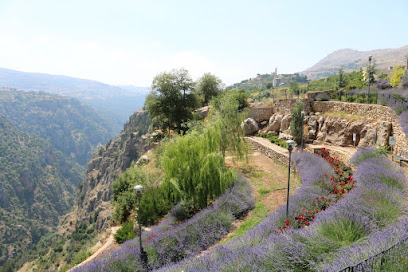
La Jetée
Explore La Jetée, a historical landmark in Bsharri, Lebanon, surrounded by breathtaking landscapes and rich cultural heritage.
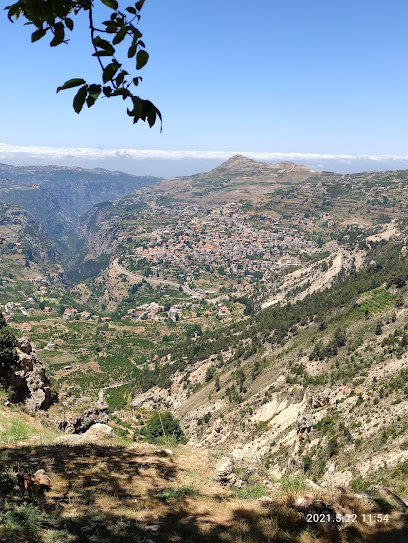
Kadisha cave bcharre
Discover the breathtaking Kadisha Cave in Bcharre, Lebanon, a natural marvel rich in history and stunning geological formations.
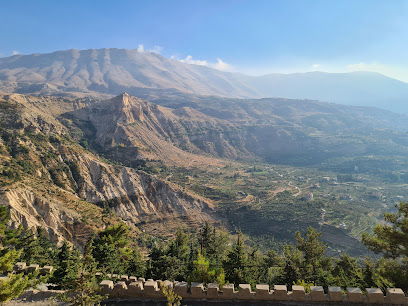
ProX Riding Club
Experience the thrill of ATV and snowmobile adventures at ProX Riding Club in Kfardebian, Lebanon, surrounded by breathtaking mountain vistas.
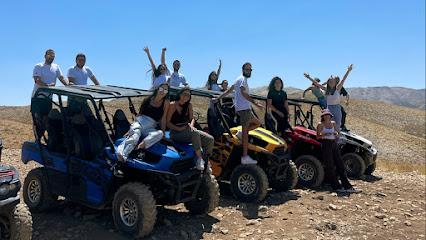
Statue of St. Charbel
Experience the tranquility and spirituality at the Statue of St. Charbel in Bqaa Kafra, a breathtaking hiking area with stunning views.
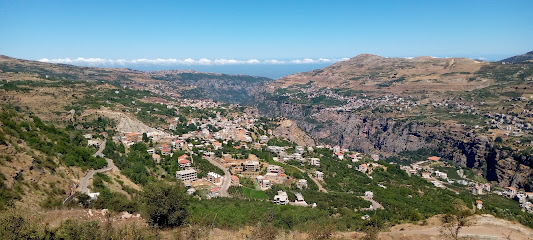
Ehden Adventures Off-road Site
Discover the breathtaking landscapes and exhilarating off-road adventures at Ehden Adventures Off-road Site in Lebanon's stunning mountainous region.
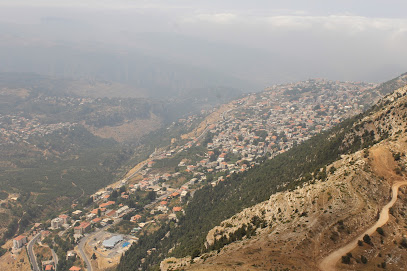
Les Jardins des Patriarches Maronites
Explore the serene beauty of Les Jardins des Patriarches Maronites in Dimane, a tranquil garden oasis perfect for relaxation and nature appreciation.
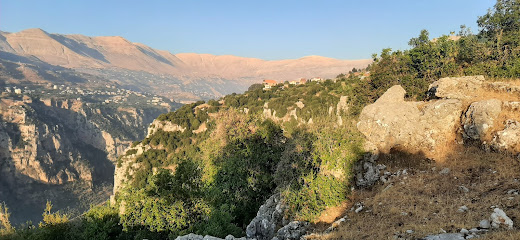
Rappel Bchare
Explore Rappel Bchare, a stunning tourist attraction in Bqaa Kafra, Lebanon, offering breathtaking views and thrilling outdoor adventures.
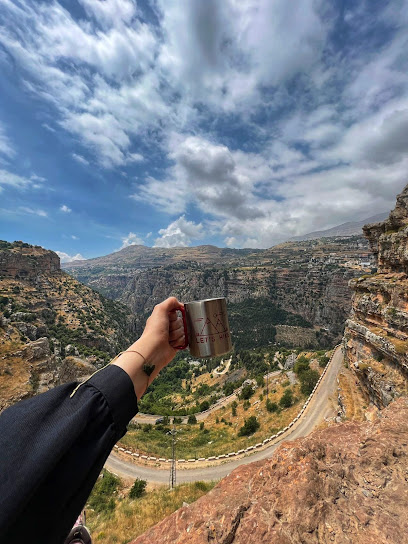
غابة صنوبر
Discover the tranquility of Ghabat Sanoubar, a majestic national forest in Lebanon, perfect for nature lovers and adventurers seeking serenity and beauty.
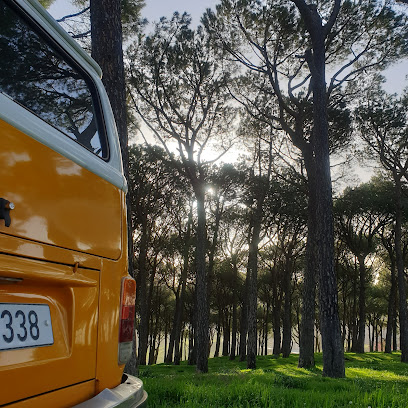
Shire el Aren
Explore Shire el Aren in Bsharri, Lebanon – a picturesque hiking area offering stunning views and serene trails for nature lovers and adventure seekers alike.
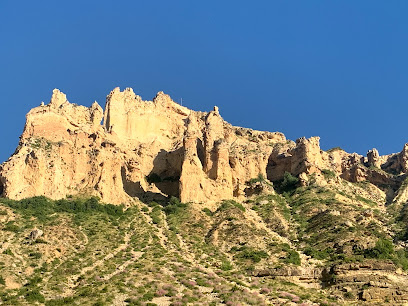
Hasroun Old Souk
Explore Hasroun Old Souk: A vibrant marketplace filled with history, local crafts, and traditional Lebanese culture awaiting your discovery.
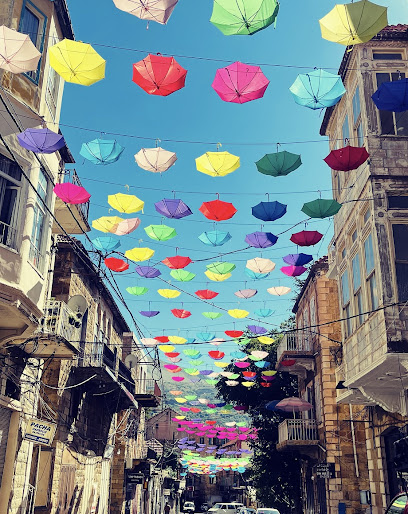
مغارة البقر
Discover the serene beauty of Mgharret al-Baqar, a premier hiking area in Hadchit, Lebanon, offering scenic trails and breathtaking landscapes.
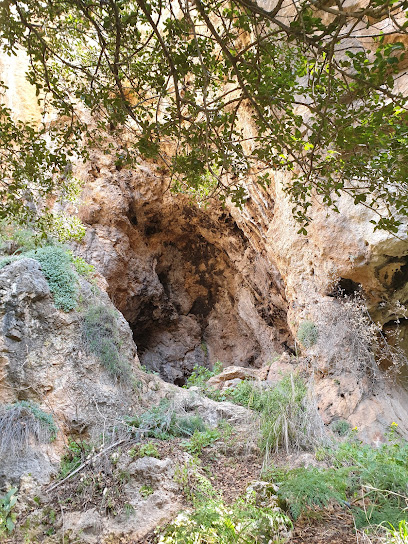
Ain elDeb Peak
Discover the breathtaking beauty of Ain elDeb Peak in Aaqoura, Lebanon, a serene escape for nature lovers with stunning panoramic views.
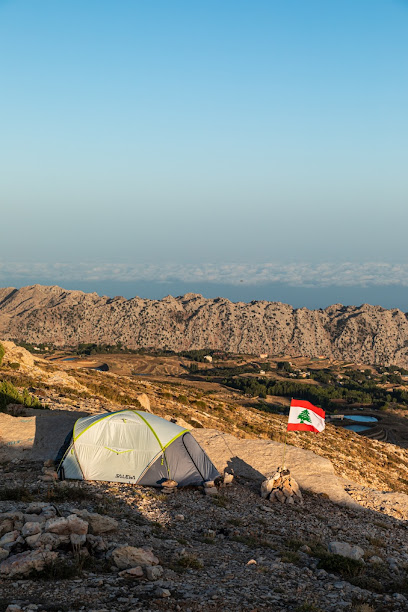
Essential places to dine
Janet Al Arez
Experience exceptional Lebanese cuisine at Janet Al Arez amidst breathtaking Cedars scenery.
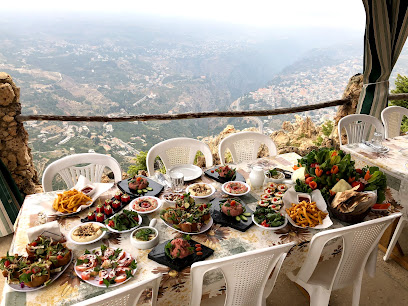
Al Zaytouni - Bcharre
Experience authentic Lebanese cuisine at Al Zaytouni in Bcharre - where tradition meets flavor amidst breathtaking views.
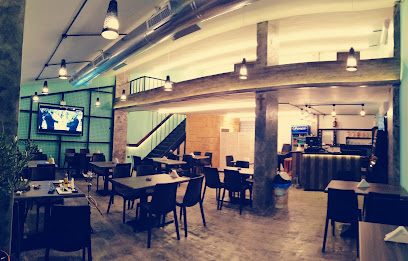
Masa Restaurant
Experience the perfect blend of Lebanese and international cuisine at Masa Restaurant in Samar Resort, where every meal is a feast for the senses.
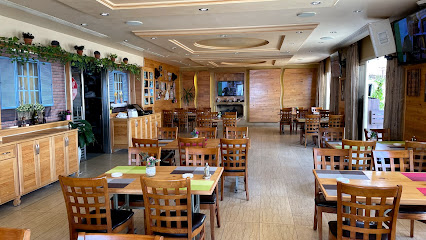
الشلال
Experience authentic Lebanese cuisine with breathtaking views at الشلال in Bsharri – A culinary gem nestled in nature.
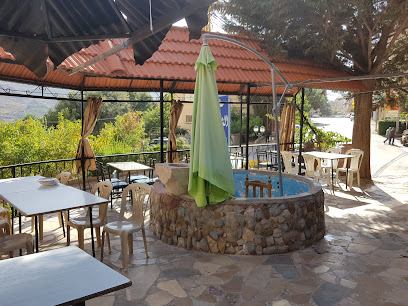
Jisr Al Kamar - Restaurant
Discover authentic Lebanese cuisine at Jisr Al Kamar in Bsharri, where every dish tells a story of tradition and flavor.
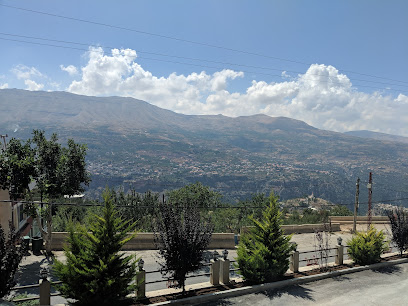
Abou Joseph Restaurant
Discover the rich flavors of Lebanon at Abou Joseph Restaurant in Bsharri – where tradition meets breathtaking views.
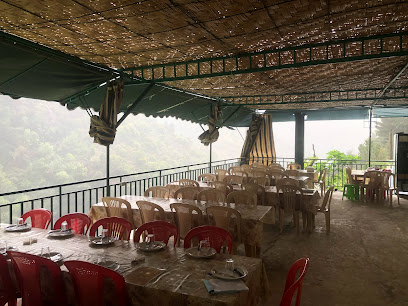
Al Reef Al lubnani restaurant & bungalow الريف اللبناني
Experience authentic Lebanese flavors at Al Reef Al Lubnani in Bsharri - where every meal is a celebration of culture and taste.
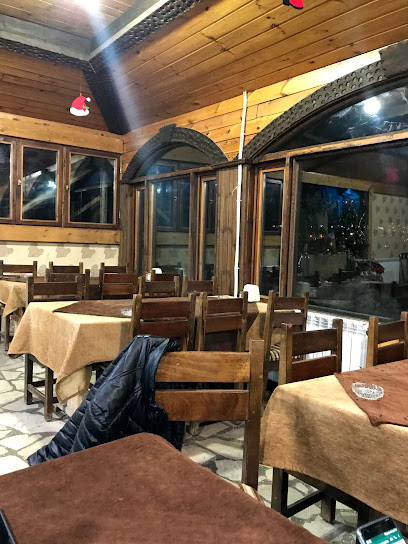
Rtc - Restaurant
Experience authentic Lebanese cuisine at Rtc - Restaurant in Bsharri, where tradition meets breathtaking views.
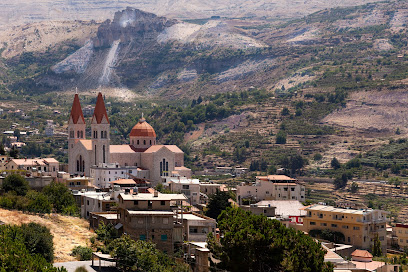
sss
Savor authentic Lebanese cuisine amidst breathtaking scenery in Bsharri – where tradition meets flavor.
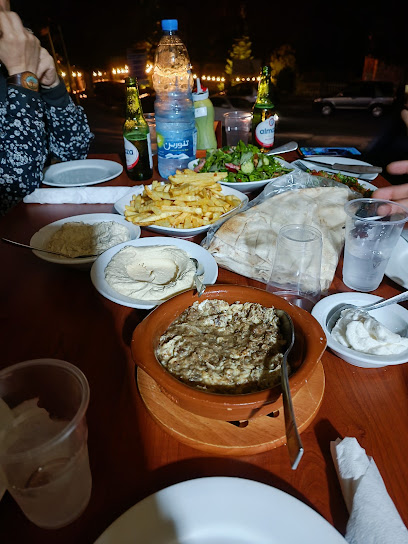
Kawkab restaurant
Experience the best of Lebanese cuisine at Kawkab Restaurant along Baalbeck Road - where flavor meets tradition in every dish.
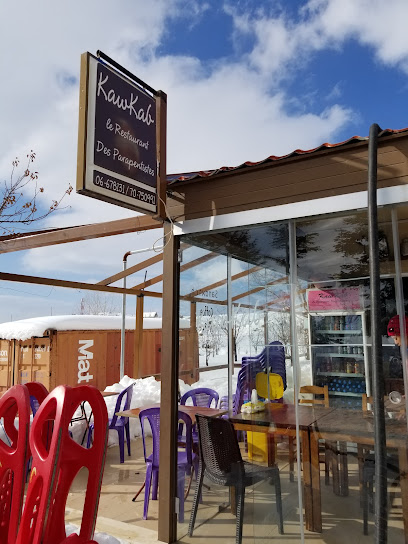
Francis restaurant
Experience authentic Lebanese cuisine amidst stunning mountain views at Francis Restaurant in Bsharri.
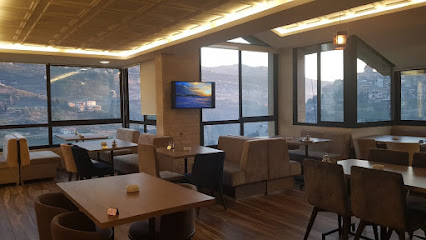
Le Pichet des Cèdres - Restaurant
Experience authentic Lebanese cuisine at Le Pichet des Cèdres in Ariz - where tradition meets flavor in every dish.
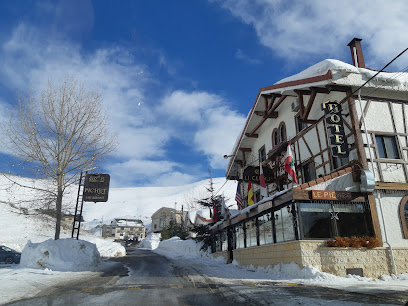
Arzat lunch buffet
Discover the essence of Lebanese cuisine at Arzat Lunch Buffet – a culinary haven along Bcharre-Tannourine Road offering an authentic buffet experience.
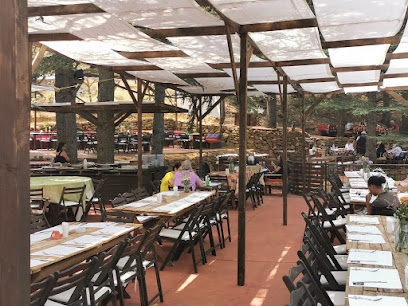
Saj el Hajj
Discover authentic Lebanese breakfast delights at Saj el Hajj in Bsharri - where tradition meets flavor in every dish.
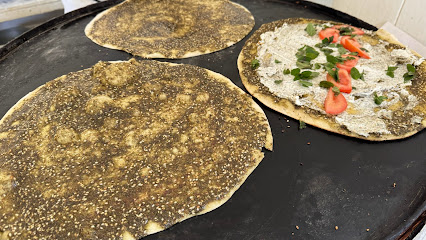
Restaurant Bourj Al Arz
Experience the heart of Lebanese gastronomy at Restaurant Bourj Al Arz in Bsharri – where tradition meets flavor amidst stunning mountain views.
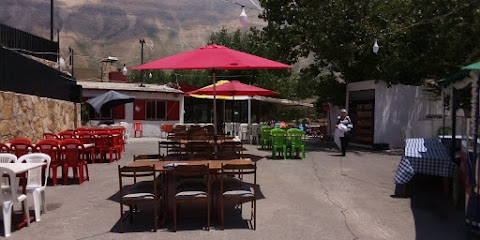
Markets, malls and hidden boutiques
Kahlil Gibran Museum
Discover the Kahlil Gibran Museum in Bsharri, a cultural gem celebrating the life and works of the iconic poet and philosopher in a stunning natural setting.
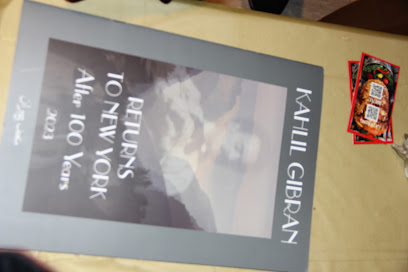
Kangaroo Supermarket
Explore the flavors of Lebanon at Kangaroo Supermarket in Bsharri, your go-to spot for local produce, snacks, and culinary treasures.
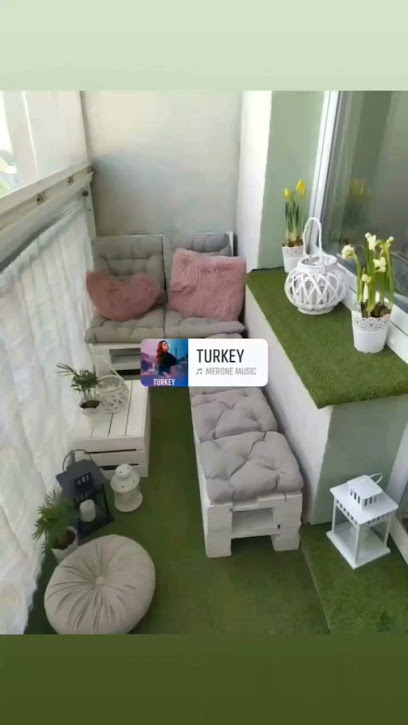
patisserie ôdelices
Discover the sweet delights of Patisserie Ôdelices in Bsharri, where exquisite pastries and charming ambiance create a culinary paradise for every tourist.
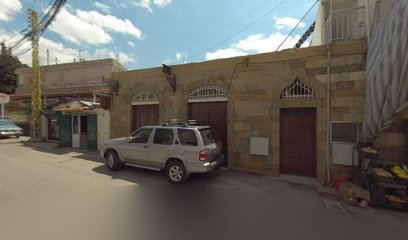
Shop and beyond
Explore wellness and beauty at Shop and Beyond, where health meets luxury in a vibrant shopping experience.
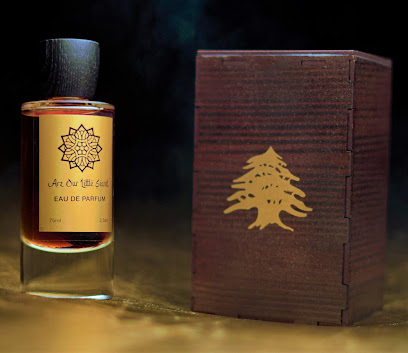
Cedart - Liliane
Explore a curated collection of authentic Lebanese souvenirs at Cedart - Liliane, your gateway to unique treasures in the heart of Lebanon.
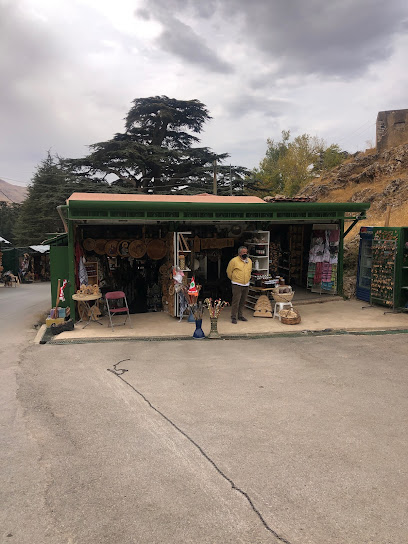
KoVee
Discover KoVee in Bsharri: a cozy coffee shop serving delightful brews and light bites in a warm, welcoming atmosphere.
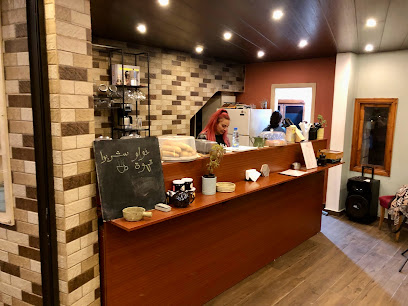
Smart Phone
Discover the Smart Phone Store in Bsharri - Your technology hub for the latest mobile devices and accessories in the heart of Lebanon.

Simona
Discover Simona Pharmacy in Bsharri for all your health and wellness needs while enjoying the beauty of Lebanon.

Fertaike - The Lebanese Fork
Discover the authentic flavors of Lebanon at Fertaike - The Lebanese Fork, a natural foods haven in the heart of Bsharri's stunning landscapes.
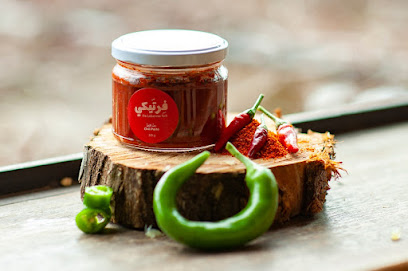
Bsharri Market
Experience the vibrant flavors and local culture at Bsharri Market, a must-visit supermarket in Lebanon's breathtaking mountain region.
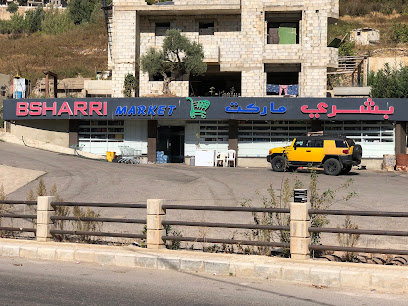
Choc-a-lot bcharre
Discover the sweet world of artisanal chocolates at Choc-a-lot Bcharre, a delightful chocolate shop in Bsharri, Lebanon, perfect for every chocolate lover.
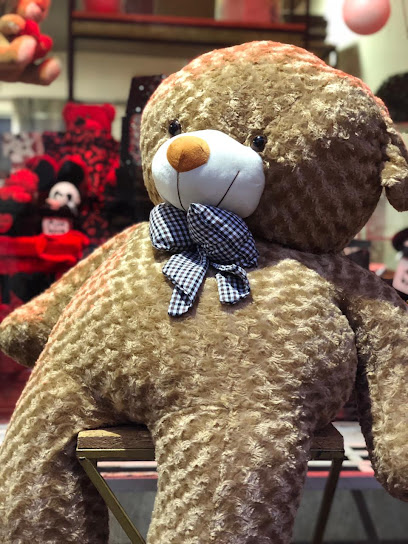
KAYOUSS MARKET
Explore the vibrant KAYOUSS MARKET in Bsharri, Lebanon, for a delightful array of local and international foods that cater to every palate.
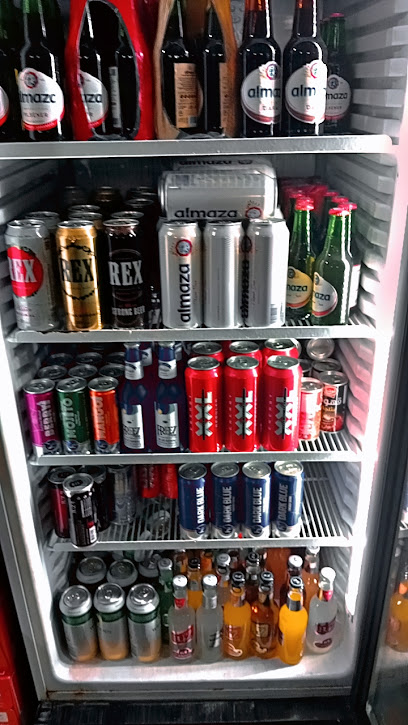
The PorkFather
Discover the essence of Lebanese charcuterie at The PorkFather, where quality meets tradition in the heart of Bsharri.
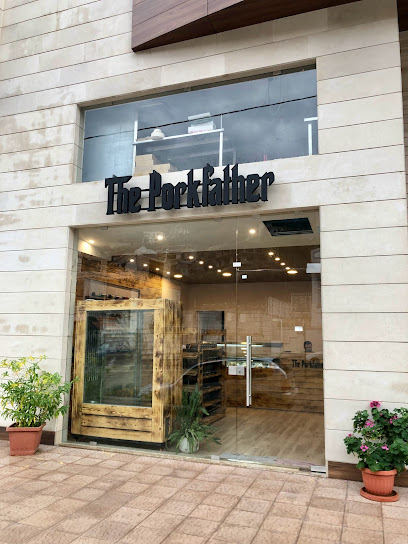
WOMAN - Bcharreh
Explore the unique blend of modern and traditional fashion at WOMAN - Bcharreh in Bsharri, where every piece tells a story.
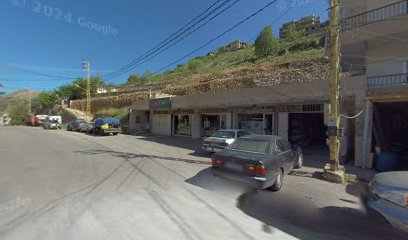
Aliens by zina
Explore the unique blend of modern fashion and traditional craftsmanship at Aliens by Zina in Bsharri, a must-visit clothing store for tourists.

Essential bars & hidden hideouts
Francis restaurant
Discover the authentic tastes of Lebanon at Francis Restaurant, a culinary hotspot in Bsharri offering delicious, locally inspired dishes.
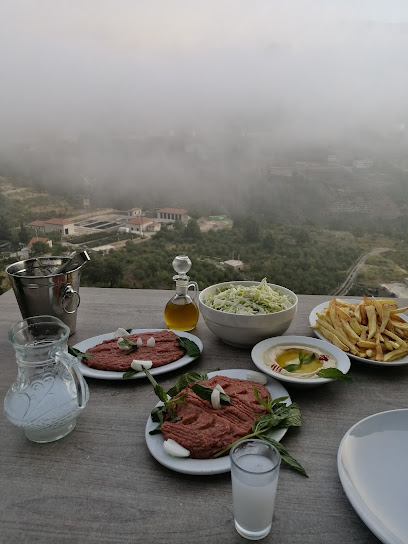
Zoofaa
Experience the vibrant nightlife at Zoofaa, a lively pub on Ariz - Baalbeck Road, where locals and tourists mingle over delicious drinks.
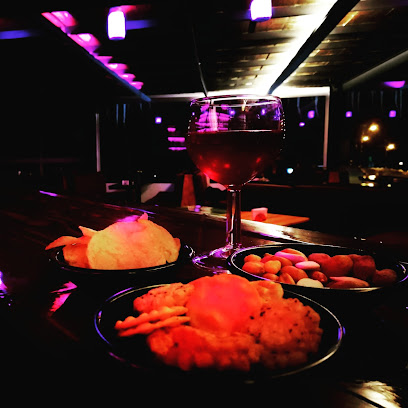
Minus Pub
Discover Minus Pub in Ehden - a vibrant bar with fantastic drinks and a lively atmosphere perfect for an unforgettable night out.
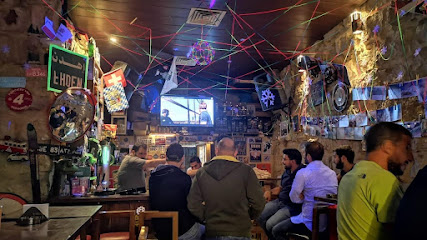
fruitbar
Experience the vibrant nightlife at Fruitbar in Bsharri - where good drinks and great company come together.
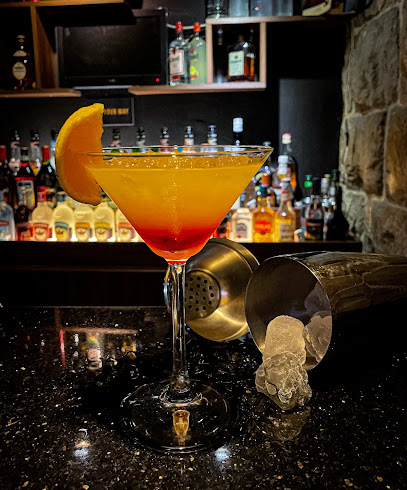
Muse bar
Experience the vibrant nightlife at Muse Bar in Bsharri, where local culture meets modern entertainment in a stunning setting.
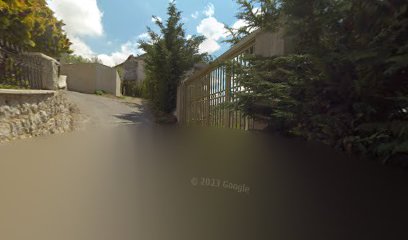
The Alpine Ale
Experience the charm of The Alpine Ale in Bsharri, Lebanon - a cozy pub offering local brews and stunning mountain views for a perfect getaway.
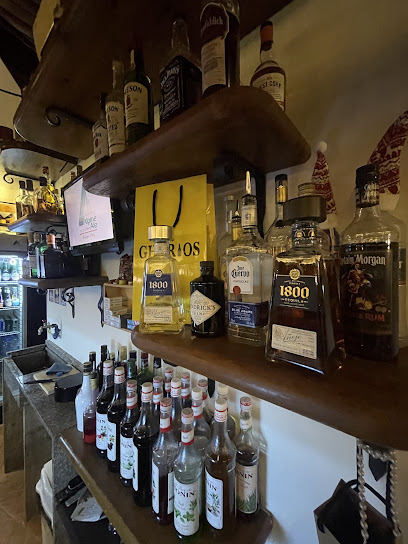
Vibes_lb_
Discover the culinary delights and vibrant atmosphere of Vibes_lb_ in Bsharri, where local flavors meet lively pub culture.
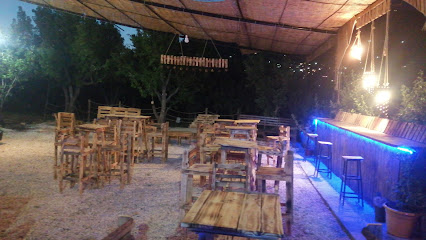
Borea
Discover Borea in Bsharri, a cozy bar offering delightful drinks and a taste of local culture amidst stunning landscapes.
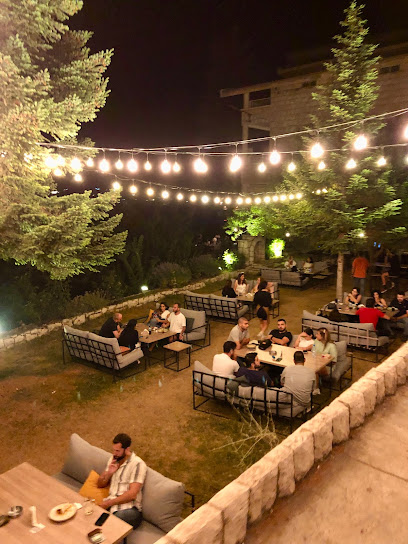
3arch pub
Experience the vibrant local culture at 3arch Pub, Kfarsghab's charming bar offering traditional drinks and a cozy atmosphere.
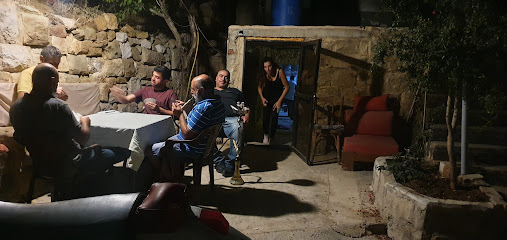
مسمكة آل تادروس ما عدا ريمون
Experience the vibrant nightlife of Bane at Masmaka Al Tadros Ma Ada Raymond, where excellent drinks and a lively atmosphere await.
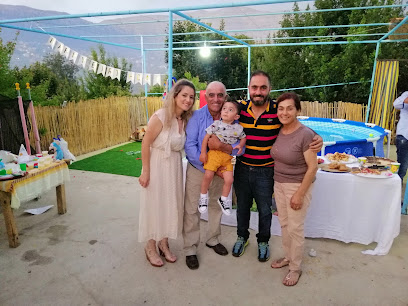
SnooBar
Experience the vibrant nightlife at SnooBar in Bsharri, where stunning views meet an eclectic drink selection and a welcoming atmosphere.
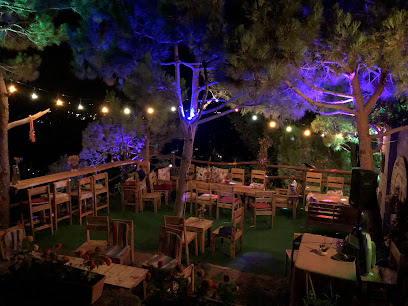
Cave Du Roi
Experience the charm of Cave Du Roi, a delightful bar near Saint Saba Cathedral in Bsharri, offering a unique atmosphere and refreshing drinks.
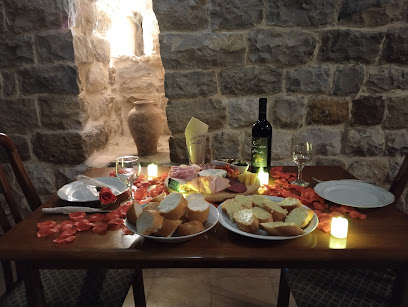
Mellow pub | Hasroun
Discover the vibrant atmosphere and local flavors at Mellow Pub, a must-visit bar in Hasroun for an authentic Lebanese experience.
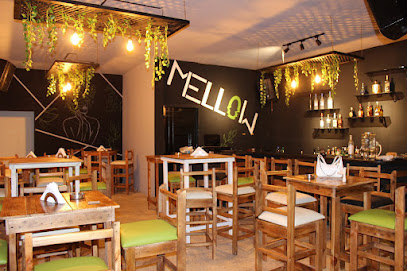
Behind Bars
Experience the vibrant nightlife of Hasroun at Behind Bars, where local flavors and a warm atmosphere await.
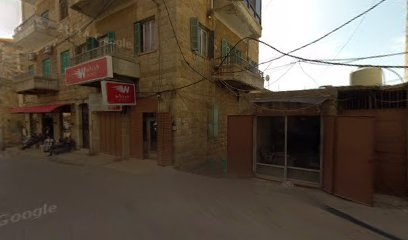
SKYLINE Pub
Discover the lively atmosphere of SKYLINE Pub, a perfect spot for drinks and breathtaking views along Bcharre - Tannourine Rd.
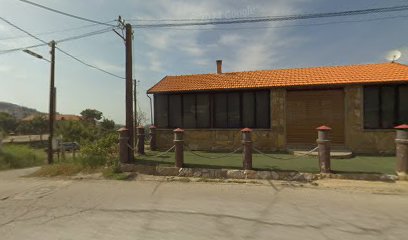
Local Phrases about Bsharri District
-
- Helloمرحبا
[marhaba] - Goodbyeوداعا
[wadaa'an] - Yesنعم
[naam] - Noلا
[laa] - Please/You're welcomeمن فضلك / على الرحب والسعة
[min fadlik / ala al-rahb was-sa'a] - Thank youشكرا
[shukran] - Excuse me/Sorryعذرا
[aathiraa] - How are you?كيف حالك؟
[kayfa halak?] - Fine. And you?بخير. وأنت؟
[bikhayr. wa anta?] - Do you speak English?هل تتكلم الإنجليزية؟
[hal tatakallam al-inglizia?] - I don't understandأنا لا أفهم
[ana la afham]
- Helloمرحبا
-
- I'd like to see the menu, pleaseأريد أن أرى القائمة، من فضلك
[uridu an ara al-qaimah, min fadlik] - I don't eat meatأنا لا آكل اللحم
[ana la aakul al-lahm] - Cheers!في صحتك!
[fi sahtak!] - I would like to pay, pleaseأود أن أدفع، من فضلك
[awadu an adfaa, min fadlik]
- I'd like to see the menu, pleaseأريد أن أرى القائمة، من فضلك
-
- Help!النجدة!
[an-najdah!] - Go away!انصرف!
[ansarif!] - Call the Police!اتصل بالشرطة!
[atasil bil-shurta!] - Call a doctor!اتصل بطبيب!
[atasil bitabib!] - I'm lostلقد ضللت الطريق
[laqad dalalt at-tariq] - I'm illأنا مريض
[ana mareed]
- Help!النجدة!
-
- I'd like to buy...أريد أن أشتري...
[uridu an ashtari...] - I'm just lookingأنا فقط أتطلع
[ana faqat atatlau] - How much is it?بكم ثمنه؟
[bi kam thamanuh?] - That's too expensiveهذا غالي جدا
[hatha ghali jiddan] - Can you lower the price?هل يمكنك خفض السعر؟
[hal yumkinuk khafd as-sa'r?]
- I'd like to buy...أريد أن أشتري...
-
- What time is it?كم الساعة؟
[kam as-saa'a?] - It's one o'clockالساعة الواحدة
[as-saa'ah al-wahidah] - Half past (10)الساعة العاشرة والنصف
[as-saa'ah al-'ashirah wan-nisf] - Morningالصباح
[as-sabah] - Afternoonالعصر
[al-'asr] - Eveningالمساء
[al-masa'] - Yesterdayأمس
[ams] - Todayاليوم
[al-yawm] - Tomorrowغدا
[ghadan] - 1واحد
[wahid] - 2اثنان
[ithnan] - 3ثلاثة
[thalatha] - 4أربعة
[arba'a] - 5خمسة
[khamsa] - 6ستة
[sitta] - 7سبعة
[sab'a] - 8ثمانية
[thamania] - 9تسعة
[tasia] - 10عشرة
[ashara]
- What time is it?كم الساعة؟
-
- Where's a/the...?أين الـ...؟
[ayn al-...?] - What's the address?ما هو العنوان؟
[ma huwa al-unwan?] - Can you show me (on the map)?هل يمكنك أن تريني (على الخارطة)؟
[hal yumkinuk an tarini (ala al-kharitah)?] - When's the next (bus)?متى الحافلة القادمة؟
[mata al-hafilah al-qadimah?] - A ticket (to ....)تذكرة (إلى ...)
[tadhkirah (ila ...)]
- Where's a/the...?أين الـ...؟
History of Bsharri District
-
The Bsharri District, nestled in the northern mountains of Lebanon, has a history that dates back thousands of years. Archaeological evidence suggests that the area was inhabited during the Phoenician era. The rugged terrain and fertile valleys made it an ideal location for early settlers who engaged in agriculture and trade.
-
During the early centuries of Christianity, Bsharri became a significant stronghold for the Maronite Christians. The Maronite Church, which still plays a vital role in the cultural and religious life of the district, traces its roots back to the early centuries of the first millennium. Monasteries and churches, like the Monastery of Qozhaya, became centers of religious learning and refuge.
-
The ancient cedar forests of Bsharri, known as the Cedars of God, are one of Lebanon's most iconic natural landmarks. These majestic trees, some of which are over a thousand years old, are mentioned in various historical texts, including the Bible. The cedars were prized by ancient civilizations like the Egyptians and Phoenicians for their durable wood, used in shipbuilding and construction.
-
Bsharri is the birthplace of Gibran Khalil Gibran, one of the most celebrated Lebanese-American writers, poets, and artists. Born in 1883, Gibran's work has left a lasting impact on literature and art worldwide. His former home in Bsharri has been transformed into the Gibran Museum, housing his manuscripts, artworks, and personal belongings. The museum attracts thousands of visitors each year, deepening the cultural significance of Bsharri.
-
Bsharri, like the rest of Lebanon, was under Ottoman rule for several centuries until the end of World War I. The region witnessed significant changes during this period, including the introduction of new administrative systems and infrastructure. Following the collapse of the Ottoman Empire, Lebanon came under French mandate, which lasted until the country's independence in 1943. Bsharri's strategic location and its distinct cultural identity were preserved throughout these transitions.
-
Today, Bsharri District is a vibrant blend of ancient traditions and modern influences. It remains a predominantly Maronite Christian area, with its religious heritage playing a crucial role in community life. The district is also a popular destination for tourists, who come to explore its historical sites, natural beauty, and cultural festivals. Modern Bsharri is a testament to its resilient history and the enduring spirit of its people.
Bsharri District Essentials
-
Bsharri District is located in the North Governorate of Lebanon. The nearest major airport is Beirut-Rafic Hariri International Airport, approximately 110 kilometers away. From Beirut, you can rent a car or take a taxi to Bsharri. The drive usually takes around 2 to 3 hours, depending on traffic and weather conditions. Public buses and private minibuses (service taxis) also operate between Beirut and Bsharri, offering a more economical option.
-
Within Bsharri District, the most convenient way to get around is by car. Renting a car gives you the flexibility to explore at your own pace. Local taxis are available but can be relatively expensive. There are also minibuses that connect Bsharri to neighboring villages and towns. Walking is feasible within the main towns, but be prepared for hilly terrain.
-
The official currency in Lebanon is the Lebanese Pound (LBP), although US Dollars (USD) are widely accepted. Credit cards are increasingly accepted in hotels, restaurants, and stores, but it is advisable to carry cash, especially in smaller establishments. ATMs are available in Bsharri town, but it is a good idea to withdraw enough cash in Beirut or Tripoli before heading to more remote areas.
-
Bsharri District is generally safe for tourists. However, it is always advisable to exercise standard precautions. Avoid walking alone in isolated areas at night and keep an eye on your belongings in crowded places. There are no specific high-crime areas targeting tourists, but staying vigilant is always a good practice.
-
In case of an emergency, dial 112 for immediate assistance. Bsharri has a local police station and medical facilities, including a hospital. It’s recommended to have travel insurance that covers medical emergencies. For minor health issues, there are pharmacies in the district where you can purchase over-the-counter medications.
-
Fashion: Do dress modestly, especially when visiting religious sites. Avoid wearing revealing clothing. Religion: Do respect local customs and traditions. Always cover your head when entering churches and monasteries. Public Transport: Do be respectful and give up your seat to elderly passengers. Don't eat or drink on public transport. Greetings: Do greet people with a handshake or a smile. A slight bow of the head is also a sign of respect. Eating & Drinking: Do try local delicacies and accept food offerings graciously. Don't refuse hospitality, as it is considered impolite.
-
To experience Bsharri District like a local, visit the local markets where you can buy fresh produce and traditional Lebanese goods. Engage with locals, as they are often friendly and willing to share stories about the region's history and culture. Don't miss visiting the Cedars of God, a UNESCO World Heritage Site, and the Gibran Museum dedicated to the famous Lebanese-American writer Khalil Gibran. For a unique experience, hike the Qadisha Valley, which offers breathtaking views and ancient monasteries.
Trending Landmarks in Bsharri District
-
Cedars of God Bsharri
-
دير مار أنطونيوس الكبير قزحيا - الرهبانية اللبنانية المارونية
-
Horsh Ehden
-
Kahlil Gibran Museum
-
House Of saint Charbel Bkaa Kafra Lebanese Maronite Order
-
Khan El Askar
-
Monastery of Mar Lishaa
-
Bcharre Public Garden
-
La Jetée
-
Kadisha cave bcharre
-
Saint Saba Cathedral
-
Tiger Guest House
-
Qadisha
-
Cedars international festival
-
Qannoubine Valley Bsharri
Nearby Cities to Bsharri District
-
Things To Do in Batroun
-
Things To Do in Baalbek
-
Things To Do in Byblos
-
Things To Do in Jounieh
-
Things To Do in Zahle
-
Things To Do in Broummana
-
Things To Do in Anjar
-
Things To Do in Beirut
-
Things To Do in Aley
-
Things To Do in Deir el Qamar
-
Things To Do in Rashaya
-
Things To Do in Sidon
-
Things To Do in Marjayoun
-
Things To Do in Tyre
-
Things To Do in Safed










